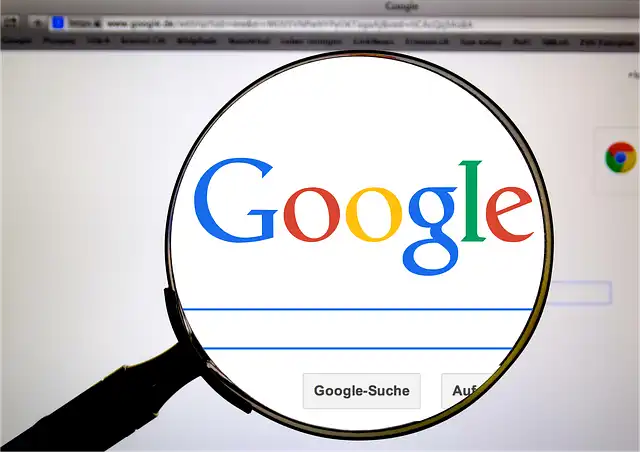Google’s Search Empire at Risk: AI, Antitrust, and the Future

Google faces antitrust scrutiny and AI competition. Its search dominance, fueled by default deals and ad revenue, is threatened by AI tools like ChatGPT. The future of search is at a crossroads.
That shift in individual behavior comes as the U.S. Department of Justice gears up for a specifying ruling in its long-running antitrust case versus Google. In a decision expected by August, Court Amit Mehta will determine whether Google needs to relax its rewarding default-search bargains and dilate its Chrome web browser.
In 2011, then-CEO Eric Schmidt warned that “the next Google” would not look like a search engine– “we’re attempting to relocate from solutions that are link-based to responses that are algorithmically based, where we can really compute the appropriate answer,” he claimed. That future is here, but Google’s own service incentives are drawing it in the opposite direction.
In the first quarter of 2025, Google’s advertising and marketing income reached $66.9 billion, with $50.7 billion coming from Google Browse– many thanks greatly to its iron-clad position as the default on gadgets and browsers. That default condition is the silent engine behind its supremacy: In 2022, Google paid Apple over $20 billion to be the preset search engine on Safari, securing the firm’s share of mobile eyeballs. Chrome, Google’s browser, includes a lot more gravitational pull.
Google’s Dominance and Advertising Model
Whether the business wins or sheds the antitrust case, the deeper problem remains: Google is developed around a marketing model that depends on search quantity, focus, and high-intent queries. Unlike pure AI chatbots, which can supply responses free of sponsorship, Google can’t just declutter its interface without removing the income stream that fuels its empire.
Google’s supremacy in search was never ever just about having the best engine. A ruling that forces Google to relax its “default” method might considerably drink up exactly how users gain access to search– and open up the door for competitors to acquire ground.
“If you remember the Samson and Delilah tale where Samson’s power remained in his hair, [Google’s] ‘hair’ is going to be search,” Jain said. And that search organization might effectively be on the chopping block– also if the DOJ doesn’t win its situation.
And the scale of business makes any change seem like attempting to turn a sea lining. “Google Look, in terms of its payment to the overall Google pie, is so overmuch huge it’s practically like a massive, enormous, ten-times-the-size-of-the-Titanic that you’re attempting to relocate,” Jain claimed. “So it’ll require time.”.
He claimed he expects some regulative feedback regardless of the result. There’ll be some action,” he said.
When Vineet Jain, the Chief executive officer of cloud management firm Egnyte, determined to spend four days without using Google Search, he was “blown away” by exactly how clean and basic AI interfaces were: no clutter at the top of his display, no advertisements, simply the responses. In the initial quarter of 2025, Google’s advertising and marketing profits reached $66.9 billion, with $50.7 billion coming from Google Browse– many thanks mainly to its iron-clad placement as the default on gadgets and browsers. That default condition is the peaceful engine behind its prominence: In 2022, Google paid Apple over $20 billion to be the predetermined search engine on Safari, securing in the company’s share of mobile eyeballs. “Google Search, in terms of its payment to the overall Google pie, is so overmuch huge it’s nearly like a substantial, huge, ten-times-the-size-of-the-Titanic that you’re trying to move,” Jain stated. In 2011, then-CEO Eric Schmidt cautioned that “the following Google” wouldn’t look like a search engine– “we’re attempting to move from answers that are link-based to responses that are algorithmically based, where we can in fact calculate the appropriate solution,” he said.
When Vineet Jain, the chief executive officer of cloud management firm Egnyte, determined to spend 4 days without making use of Google Look, he was “surprised” by exactly how tidy and simple AI user interfaces were: no clutter on top of his screen, no advertisements, simply the solutions. Soon after, his 15-year-old child told him, “We do not make use of Google anymore. We do everything with ChatGPT.”
The Rise of AI-Native Search
Browse is no more comparable to Google. ChatGPT and other AI-native tools are starting to pull web traffic and interest away from typical internet search engine by addressing questions straight, missing the blue links, and overlooking the advertisement slots altogether. According to a current record from Mary Meeker, ChatGPT struck a billion searches a day in much less than two years; Google required 11 years to get to that mark.
And that tension will just grow even more excruciating as AI-native devices increase. Jain predicts search will certainly remain Google’s biggest earnings factor “for at the very least the following 5 to seven years,” however beyond that, the fundamentals begin to wobble.
As AI search begins to record a larger share of the search market, Jain said the argument Google might make is, “‘ Hey, we are not a syndicate any longer. We’re not as dominant as you’re making us out to be.'”.
And while Google has actually started integrating AI into its products– from AI introductions to Gemini– it’s attempting to have it both means: serve direct answers while maintaining customers scrolling and clicking long enough to monetize their attention. That’s a much tougher method than it seems, particularly as users involve expect stripped-down, ad-free experiences from devices such as ChatGPT, Perplexity, or Claude.
Google’s Future Challenges
Still, he’s not betting versus the firm. “Individuals undervalue Google and the intellectual horsepower they give the table. And they are adepts,” Jain claimed. “I would not bet against Google at this point.”.
Jain said Mehta’s ruling could be a “watershed moment” for Google “in regards to how they regulate their platform power. Because they have ended up being a behemoth– in search, display, advertising and marketing, whatever related to it.”
Any erosion to Google’s core business might not get headings like a court room ruling, but it could be as substantial. Just as Microsoft missed the mobile transformation while defending its Windows monopoly, Google risks clinging to its present business model while the next paradigm quietly passes it by. This isn’t the very first time Google has dealt with a potential disruption– mobile search, voice assistants, and upright platforms like Amazon and TikTok have all chipped away at its supremacy.
1 advertising revenue2 AI assistants
3 antitrust case
4 ChatGPT
5 Google search
6 search engine
« Global Growth Slowdown: Trade Tensions & UncertaintyGen Z & Vocational Education: Differing Opinions on Career Paths »
